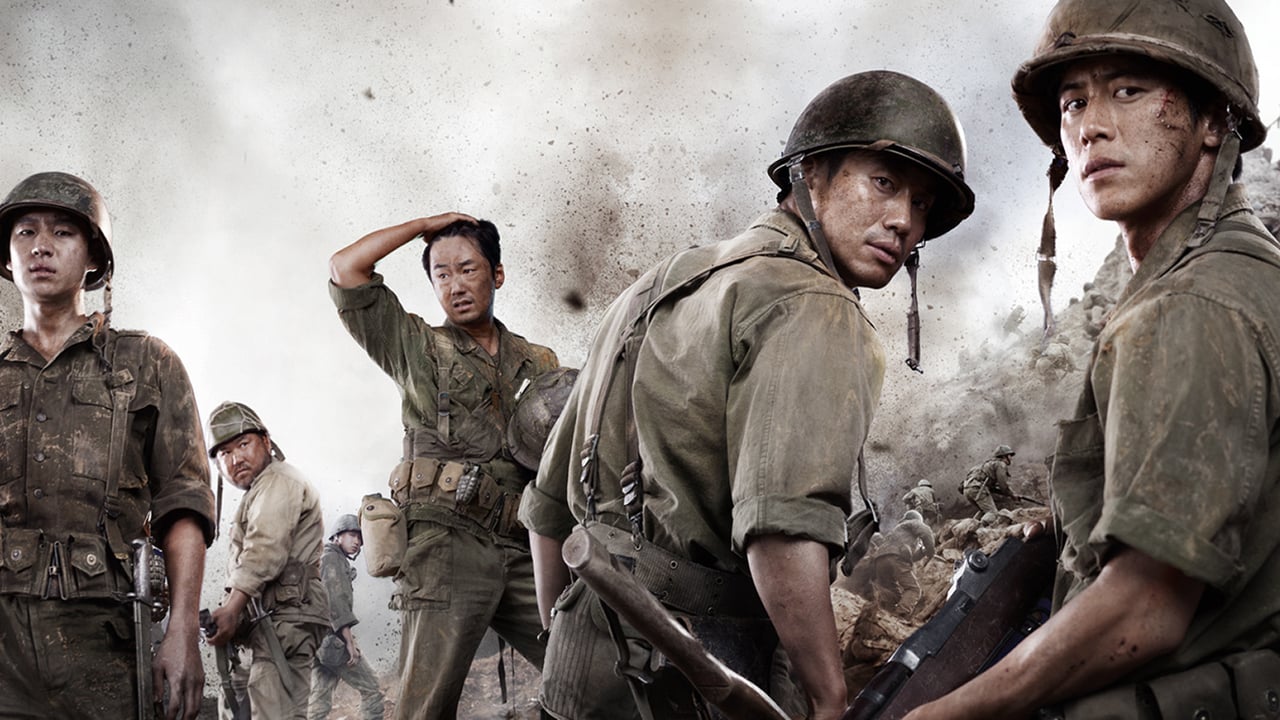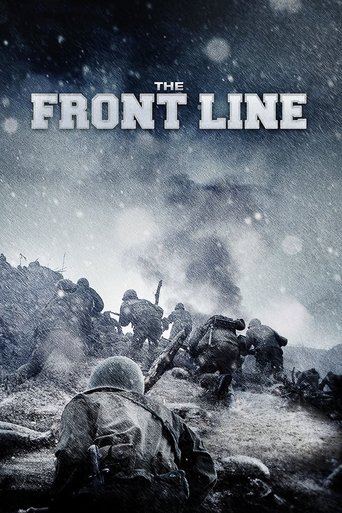

Although in Korean, this movie has captured the complete experience of war. It shows the futility of the foolishness of mankind. Eventually, even the supposed winner never wins. This is a most see to all war movie fans! OPINION: The rich and greedy bankers who finance wars use good honest innocent peoples blood and sacrifice to enrich themselves. Look who profits. Iraq, Afghanistan are good present day examples. Do your research and wake up. We free (or so called free) citizens are being duped and sold down the river by these heartless bastards. All in the guise and name of patriotism! America is in big trouble, and being destroyed piece by piece. http://thearizonasentinel.com /2013/12/24/ senior-military-officers-finally-speaking-up/
... View MoreUnless you are totally familiar with the strange morass that was the Korean War, the results of which are this day evident in a divided county, it might help to zip over to Wikipedia and get an overview of the reasons for the conflict, some historical background as backup, as The Front Line tosses the viewer into the heat and broil of battle at once, and it helps to know what's going on historically. That said, this is an amazingly powerful and kinetic document about power and honor and the nature of being a soldier; it is told from the viewpoints of one main character sent to join a problematic unit where it appears that there might be an embedded traitor; along with the viewer, the character discovers who in the unit holds what secrets, who has a sense of perspective, who cannot take orders and even unearths a past event which explains the odd behavior of so many in the unit. All this while having to engage in brutal battle, often hand-to-hand, on a daily battle, an immersion into human beings expected to be killing machines.Like Kubrick's great anti-war classic, Paths of Glory, The Front has the men engaged in which is essentially a suicide mission to save a small inch of land; in Paths of Glory, it was the "Anthill," held by the Germans; in this film, Aerok Hill, still in dispute. This is a dark film with occasional glimmers of humanity, but no glorification of war.
... View MoreLet me start off by saying that I'm a huge fan of any war movies/documentaries/TV-series/etc. It's hard to do wrong when I'm so interested in the subject manner. Technical aspects aside, my main gripe with The Front Line is that it is so full of clichés, overused tropes, imitations of other war films, and exaggerations. The fat guy as comedic relief? Check. Melodramatic reactions from just about everyone? Check. Blue filter to mean sad and orange filter to mean warmth? Check, please. Every other scene! Scenes that looked strangely and suspiciously familiar to Saving Private Ryan/Band of Brothers/Gone with the Wind/stereotypical war movies? CHECK. The film was so over the top and aimlessly drawn out. More than 50 minutes could have been safely cut without sacrificing the plot line. At some point while writing the script, perhaps the writers felt the film could use a more personal/almost romantic story. Enter "Two Seconds", a sniper from the North Korean side. The two male characters and her do not share a particularly strong and personal relationship; yet, we're forced to place an uncalled for amount of value on their connections, especially between her and Su-Hyeok (this is how his name was subtitled in my DVD; different from the IMDb listing). The writing and plot lines (that somehow felt as if there were too many and too few of the plot lines) were masterful examples of trite war film dialogs. Nary a quick chuckle escaped my mouth; probably because the joke was stale and again, derivative. I am fluent enough in Korean to understand the dialog, so I don't think it was lost in translation either. The acting, man. It was as if they read a manual on acting from the dollar store in the 1970s and followed it, word for word. It didn't feel organic, believable, or smart for me. Why do all the soldiers have such pearly white teeth? North Korean army men had the same haircuts, for the most part, but the South Korean army was mixing it up. My favorite questionable moment was when a group of the South Korean soldiers were on the hunt for Two Seconds and finally were within range of her. Hiding behind a boulder of sorts, the leader places his head on a rifle and raises it slowly above to see whether she will shoot/can see him or not. She shoots and the helmet is knocked off. A few seconds later, the audience should some how forget about this because the leader just raises his whole damn head from behind so he can get a better view. Say, didn't we just learn that she's going to shoot? If I were him, I would maybe move to the other side of the boulder or have some sort of tactic before raising my head. This concern was not addressed in the movie whatsoever because the storyline progressed with this factor being inconsequential. & Eun-Pyo - why wouldn't you at least capture this incredibly dangerous sniper who has been attacking your men? Ultimately, I say I don't know what I watched because this movie seemed to be an unsatisfying stew of other works, unoriginal characters and dialog, and bad acting. I would give them one star, but I have to give them credit for the few scenes that were shot nicely. I don't know how well this film was received in Korea, but I can't believe this was the best the country could offer for Academy Award contention.
... View MoreThe Front Line Go-ji-jeon is not as good as Tae Guk Gi: The Brotherhood of War, which is one of the best war films from any country. What it does give you is a good example of the futility of war and how events in war can made little sense to a sane person. One of the interesting points in the movie was the signing of the peace documents during the ongoing peace negotiations and see General Mark Wayne Clark's signature focused on. General Mark Wayne Clark was considered by many to be one of the worst examples of the leadership chain in the US Army during World War II, do a little research on Clark and it will help you understand that there were a few very inept Generals in the US military just as there are poor CEO's in the corporate world today. Again very good war flick and another good movie from South Korea.
... View More